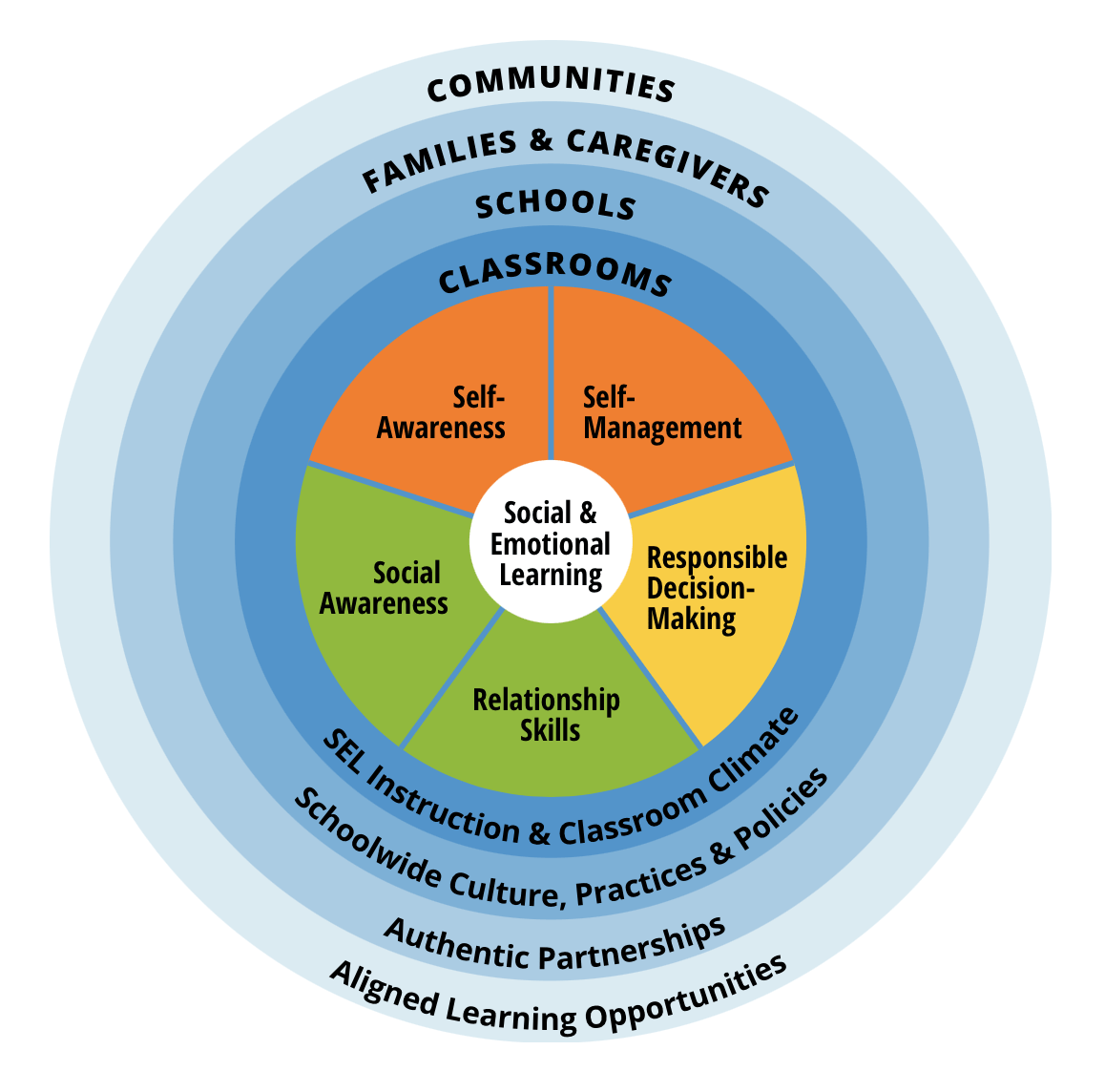contact@stpatrick.org 773-282-8844
Beginning with the initial freshman interview, students will work with their counselors to identify areas of academic interest, explore different activities that engage their passions, and start planning a future course that will bolster their strengths and support areas that need more attention. Students will complete personality profiles, skills and interest inventories, and learn about their executive functions. Group activities will include discussions on developing a sense of self, the importance of emotional control, and how to improve decision-making.
Saint Patrick has experience in responding as a whole, with teachers, counselors, administrators and parents tailoring the accommodations and a supportive plan to meet the individual needs of each student. We are committed to an anti-bullying environment that is a safe place for our students to learn.
Saint Patrick High School uses the CASEL’s Framework to:

The Saint Patrick Psycho-Educational model will include methods for recognizing and responding to problematic behaviors including bullying, alcohol and drug use, isolation, anxiety, depression, suicidal ideation, and the misuse of social media. When needed, students and their families will be aided in finding the external support to help them overcome any issues that require further attention, with the goal of getting the student back on track as soon as possible.
Because the school setting includes many contexts—classrooms, hallways, cafeteria, playground, bus—fostering a healthy school climate and culture requires active engagement from all adults and students. A strong school culture is rooted in students’ sense of belonging, with evidence that suggests that it plays a crucial role in students’ engagement.
When schools and families form authentic partnerships, they can build strong connections that reinforce students’ social and emotional development. Families and caregivers are students’ first teachers, and bring deep expertise about their development, experiences, culture, and learning needs. These insights and perspectives are critical to informing, supporting, and sustaining SEL efforts. Research suggests that evidence-based SEL programs are more effective when they extend into the home, and families are far more likely to form partnerships with schools when their schools’ norms, values, and cultural representations reflect their own experiences.